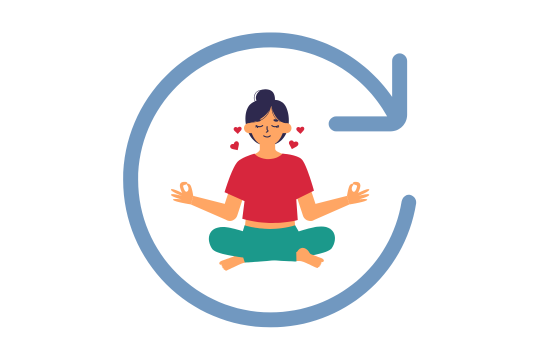Boost Your Digestion Naturally: Unlocking the Secrets to a Healthy Gut
Are you tired of dealing with digestive problems? Look no further! This blog post unveils the secrets to improving digestion naturally. We will cover everything from mindful eating and hydration to the benefits of fiber-rich foods and probiotics. By implementing these actionable tips, you can transform your gut health and reclaim your digestive wellness.
Good digestion is the cornerstone of overall health and well-being, as it is responsible for breaking down the food we eat and absorbing essential nutrients. When our digestive system functions optimally, we experience increased energy levels, improved immunity, and better overall health. However, poor digestion can lead to discomfort, bloating, and various health issues.
.png)
Let's unveil the secrets now!
Mindful Eating:
The first step towards improving digestion is adopting mindful eating habits. Slow down and savor each bite, taking time to chew your food thoroughly. This aids in the mechanical breakdown of food, making it easier for your digestive system to process. Additionally, mindful eating helps you recognize feelings of fullness, preventing overeating and reducing the strain on your digestive organs.
Hydration:
Adequate hydration is crucial for proper digestion. Water helps break down food, facilitates nutrient absorption, and softens the stool, preventing constipation. Aim to drink at least 8 glasses of water daily and increase your intake during hot weather or physical activity. Herbal teas and infused water with lemon or ginger can also provide additional digestive benefits.
Include Fiber-Rich Foods:
Dietary fiber plays a significant role in maintaining a healthy digestive system. It adds bulk to the stool, promotes regular bowel movements, and supports the growth of beneficial gut bacteria. Include a variety of fiber-rich foods in your diet, such as fruits, vegetables, whole grains, legumes, and nuts. However, increase your fiber intake gradually to allow your body to adjust and prevent discomfort.
Probiotics and Fermented Foods:
Probiotics are beneficial bacteria that aid in digestion and support a healthy gut. Incorporate probiotic-rich foods like yogurt, kefir, sauerkraut, and kimchi into your diet. These foods help maintain a balanced gut microbiome, improving digestion and nutrient absorption. Alternatively, you can consider taking high-quality probiotic supplements after consulting with your healthcare provider.
Reduce Stress:
Chronic stress negatively impacts digestion by altering gut motility and reducing enzyme secretion. Engaging in stress reduction techniques such as deep breathing exercises, meditation, yoga, and regular physical activity can help improve digestion. Prioritize self-care and find activities that promote relaxation and mental well-being.
Limit Processed Foods and Sugar:
Processed foods, high in refined sugars, unhealthy fats, and artificial additives, can disrupt digestion and lead to inflammation. Opt for whole, unprocessed foods whenever possible. Focus on fresh fruits, vegetables, lean proteins, and whole grains. Minimize your consumption of sugary beverages, candies, pastries, and processed snacks. A wholesome, nutrient-dense diet supports healthy digestion.
Regular Physical Activity:
Regular exercise not only benefits cardiovascular health but also aids digestion. Physical activity stimulates intestinal contractions, enhancing bowel movements and preventing constipation. Engage in moderate aerobic activities, such as brisk walking, cycling, or swimming, for at least 30 minutes most days of the week. Remember to wait at least an hour after eating before engaging in vigorous exercise.
Proper Meal Planning:
Establishing regular eating patterns and avoiding irregular, excessive, or late-night meals can greatly improve digestion. Plan your meals in advance, including a balanced combination of carbohydrates, proteins, and healthy fats. Eating smaller, more frequent meals throughout the day instead of large heavy meals can ease the digestive burden and enhance nutrient absorption.
Please know that everyone's digestive system is unique, so be patient and observe how your body responds to different dietary and lifestyle changes. Small changes can make a significant difference in how you feel.







